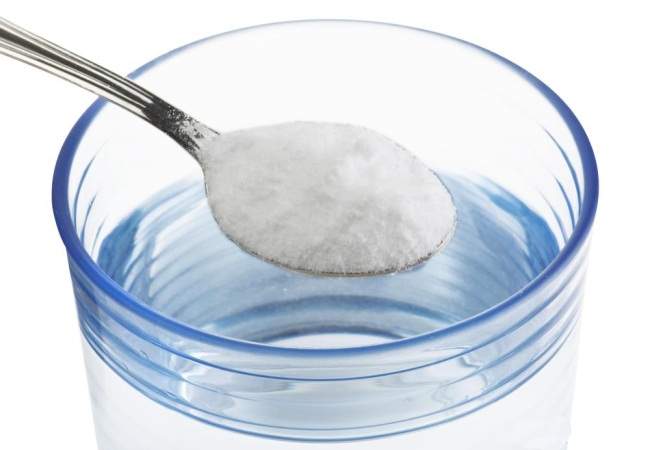
From the word itself, “dry cough” is a type of cough that does not produce fluid secretions, which is called phlegm. Any cough is a annoying or irritating as it may disturb daily work as well as sleeping habits. Moreover, it is said to cause pain as it feels something is stuck behind the throat and hard to get it out even with continuous coughing.
Dry cough takes place because the back of your throat (or pharynx) becomes irritated or inflamed, but may also result from deeper in the chest. This may be a sign of viral infection as well as allergens and atmospheric pollutants such as smoke.
On the other hand, cough is not a sickness but rather a symptom of a disease which can be minor or serious. It can also acute or chronic cough, depending on the underlying cause of infection.
What are causes?
There are a lot of points to be considered on how an individual might acquire a cough but mainly it falls to one problem; the nerve endings of the airways are infected. Anything can trigger you coughing; for instance, allergens like pollens and dust; pollutants like smoke; food particles and germs, etc. Here are the common causes of dry cough:
- Viral infection
Viruses are like hijackers — they invade existing normal cell. Then, they use them to multiply and cause common contagious disease such common cold and influenza (commonly known as flu). Cough caused by viral infection may start at the beginning of the illness. Apparently, it may also appear in the middle until the end of the infection.
- Air pollutants
We are all aware that pollutants cause a lot of health problems and dry cough is not an exception. It could irritate the back of the throat as the person gets exposed to smoke. However, pollutants aren’t smoke alone as fumes from hairsprays, varnish and aerosols may be classified as factors contributing to air pollution. Furthermore, methane from wastes may replace oxygen in an enclosed space.
- Allergies
There are a lot of allergies that might lead to coughing whether dry or wet. Allergens float around us all the time considering that the environment changes over time. For instance, house mites and inhalants that we gain contact as we go out may trigger allergies. Coughing is a defense mechanism of our body as it fights back allergens that cause linings into our throat and respiratory system.
- Side effects of Medications
Some prescription medication may lead to dry cough as a side effect. Up to 6% of the people taking up Sitagliptin, a medicine for type-2 diabetes may develop sore throat and dry cough. The cough is usually worse during night time when the person is lying down. It may also be caused by allergic reaction to the medication. Please keep in mind that persistent cough occurring for more than three weeks long may be already a sign that an individual has a medical condition like asthma, heart disease and respiratory problems. Seek for a doctor’s help if this symptom persists.
Home Remedies on How to Get rid of Dry Cough
Let’s eliminate the irritation we suffer each night as we battle it with natural remedies. Going natural is always the best option as we are not risking ourselves with harmful side effects.
- Keep yourself hydrated
In getting rid of cough, the first step we should take would be to keep our body hydrated. Not only it would help your throat from irritation, but also facilitate you in regaining fluids that you lose through sweating. In order to achieve best results, avoid drinking carbonated drinks and citrus juices as it could trigger sore throat. Instead, help yourself with warm drinks. It would be a great help to have hot tea, boiled water with honey, or a warm soup to loosen congestion and minimize coughing.
- Loosen up with steam
A hot bath or exposing your face (specifically your nasal area) to steam is a traditional yet good method of relieving dry cough as it loosens nerve endings of the airways. Adding essential oils would be more beneficial due to its anti- inflammatory properties. This would require a bowl of water, a clean towel, a couple of drops of eucalyptus oil, and 3 drops of tea tree oil. Oil essentials are optional. Boil water in a heatproof bowl then add the essential oil. Then, lean over the bowl and inhale the steam for 5-10 minutes thrice a day. It is advised to keep your head covered with a towel for better effects.
- Eucalyptus
Eucalyptus has a great power especially for cough and cold-related symptoms. It is one of the most common ingredients in various medications like cough syrups and ointments. The oil has a strong scent that unblocks nasal congestion and can be used in baths as well to soothe an irritated respiratory tract.
- Honey

Honey is one of the traditional ingredients people used in cough syrups. It has analgesic anti-microbial and anti-oxidant components which are very useful in alleviating sore throat. It also gets rid of phlegm. You can blend a warm milk and honey, which is a very ideal method.
- Boost your immune system
Eating a fruit packed with vitamin C like lemon, pineapple, and grapes will help you boost your immune system. Adding fruits rich in vitamin C into your diet will help you recover from cough faster. You could also your boost immune system with garlic, whether eating it raw or putting it in a soup will aid in recovering from cough as it has some antimicrobial and antibacterial properties.
- Use humidifier
Coughing can be aggravated and be more persistent if the air doesn’t have moisture. Creating a moist environment will soothe a cough. Make sure to clean it regularly as the moisture could breed mold or mildew. If not well kept, it would generate disease-causing pathogens, which can become airborne.
- Gargle salt water

This is a very good option in relieving dry cough especially if you are trying to save money from purchasing goods or items. Apparently, salt water promotes osmosis, a process in which water moves through a semi-permeable membrane from a region of low solute to a high concentration. In this case, when you gargle salt water, swelling will decreased.
- Give yourself some rest
Enough sleep not only helps your body to recover from disease but also prevents it from having one. Prevention is still better than cure. Give yourself a rest as it reinforces your immune system to fight off infections.

